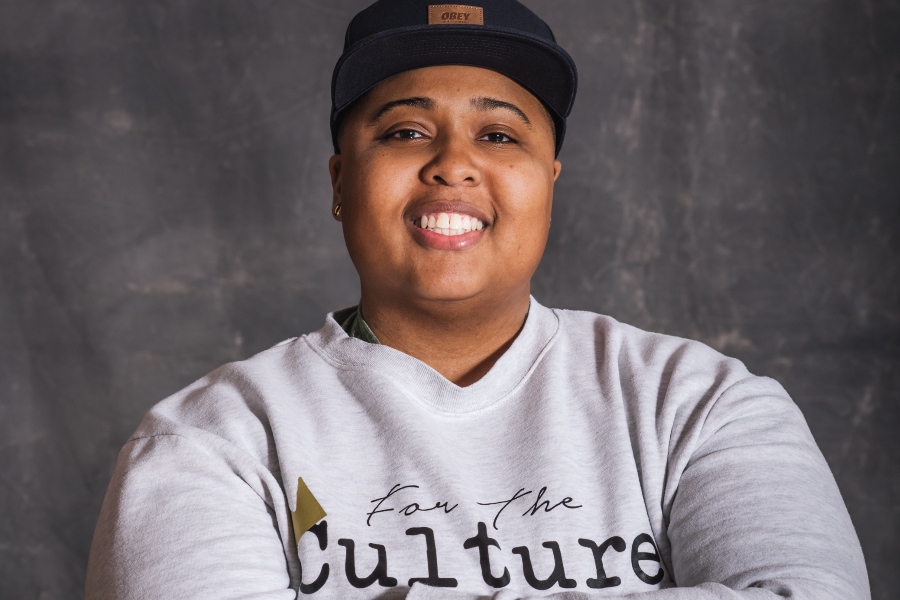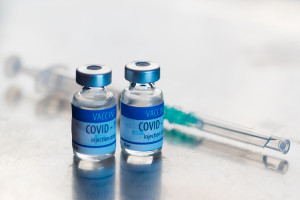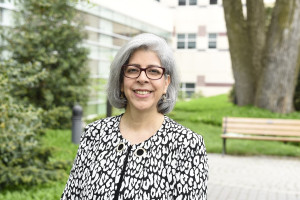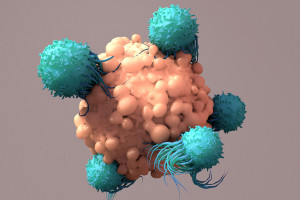Meet the Founder of Philly’s First Black-Owned Biotech Manufacturer

Tia Lyles-Williams is the first queer Black woman to own and lead a biopharmaceutical manufacturing company like LucasPye Bio. / Courtesy
Tia Lyles-Williams is a unicorn. As a queer Black woman serving as the chief executive officer of a Contract Development Manufacturing Organization (CDMO) that helps companies fast-track the clinical development of biologic drugs, Lyles-Williams is a rare find in the pharmaceutical industry. Black people account for less than 10 percent of all people employed in the pharmaceutical or medicine manufacturing industry, according to the Bureau of Labor and Statistics.
While there is no official tally on how much of that 10 percent is made up of women who identify as queer serving in leadership roles, it is safe to assume that number is just as minuscule. And Lyles-Williams is the first queer Black woman to own and lead a biopharmaceutical manufacturing company the likes of hers, LucasPye Bio. She’s currently on a path to make LucasPye Bio one of the most successful Black-owned commercial biotechnology companies to emerge in the U.S. since the renowned Black chemist Percy Lavon Julian launched his company, Julian Laboratories, in the early 1950s.
According to Lyles-Williams, her company is one of only seven biologics CDMOs in the U.S. with capabilities to develop and manufacture gene-based drug products. Founded in 2018, LucasPye Bio has a two-fold mission to lower the costs for biotherapeutic drugs and accelerate new drugs into the commercial market while also providing jobs to people from underserved communities that are typically underrepresented in pharma. The emergence of the COVID-19 pandemic has only accelerated those goals.
Amid the pandemic, the development of biologic therapies and vaccines has skyrocketed as scientists rush to bring a cure to the market. When ready, the companies responsible for those therapies will undoubtedly be relying on CDMOs like LucasPye Bio to manufacture drugs at scale. We spoke to Lyles-Williams about how her company has fared through the pandemic and the importance of diversity in the pharmaceutical industry.
NextHealth PHL: Why did you decide to launch a business in the pharmaceutical industry?
Lyles-Williams: One reason was to bring down the cost to manufacture drugs. They are extremely expensive to make, specifically biological drugs. So, I wanted to come in and bring those costs down to bring down the prices for patients that need access to those drugs once they’re on the market. I also wanted to make an impact in providing high-wage, high-quality employment to underserved communities. The current starting rate for a manufacturing operator in biotech with no experience and no degree is $38,000 a year. We have committed to recruit people from underserved communities to do a 10 to 12-week paid training, with benefits starting immediately and their starting salary with us, with no experience, no degree would be $50,000 a year. So that is a huge impact for people like me that come from underserved communities that are trying to provide for their families and provide for themselves.
Who is LucasPye Bio’s average client and what do you help them to do?
Our average clients are startups themselves. They have molecules that they consider to be in pre-clinical development, meaning they’ve gotten enough data from the wet lab and they’ve convinced investors to give them enough money to at least manufacture material for animal studies, where they build out the model and really see if the drug works, and more importantly if the drug is safe. Once they do that, then they will come back to us to make additional material for the human clinical trial. But the data that they receive during the animal studies, they actually take that data and file paperwork with FDA for what they call an innovative new drug application or IND and the FDA uses that data to make a decision on whether or not to grant them permission to test their molecule in human beings.
What drives you to do this work?
It feels good to be one of few people who look like me in this industry but I also feel the pressure — pressure to execute our goals on time, internally, and also to meet the needs of the industry. I lost my grandmother to cancer. I personally had 12 family members diagnosed with COVID-19, five of whom died. So, I definitely feel the pressure to help bring safe drugs to market faster. But I’m also excited about the opportunity to follow in Dr. Percy Lavon Julian’s footsteps and take it to the next level. He definitely did this on a huge scale and he had haters at every corner. There’s definitely a lot of pressure and a lot of eyes looking at me now too, to see how I’m going to turn this into a post-revenue company and successfully launch it off the ground.
“Because of the lack of people that look like me at this level, they typically don’t take me at face value like my peers. They’re not going to sit there and look at a booklet and decide to do business with us.”
How does being a queer Black woman in this industry affect your ability to do business?
Most of the people I meet in this industry are either white males or of Asian descent. Only one of my customers is led by an Asian female CEO. Does that cause us issues? I would say yes and no. I think it intrigues people and that is sometimes why they tend to reply back to us so we can do an initial introduction. However, because of the lack of people that look like me at this level, they typically don’t take me at face value like my peers. They’re not going to sit there and look at a booklet and decide to do business with us. They’re not only going to want to speak to my business development director, but they’ll also want to speak to me to see if I really have the knowledge to do this or if I’m just the face that they put in the CEO seat just to do something different in the industry. So, it’s been working in our favor and against our favor in some ways.
How has the pandemic affected your business?
Pre-pandemic, we were on a slow road, but it was leading up to us receiving our first tranche of venture capital. When the pandemic hit, we were supposed to receive that funding, but it was pushed back to the fourth quarter. Also, at that time, we didn’t have any processes in place to specifically go after our target markets. So, since then, we have created an official sales cycle to recruit customers. We’re open for business in collaboration with the Jefferson Institue for Bioprocessing (JIB) and Celltheon, and we’re excited about the first tranche of investment, which will be coming down this quarter.
What are your plans for the company in 2021?
So, 2021 will definitely be the year that we’ll be building out our facility and operating by the fourth quarter of 2021. We’ll be hiring our team of full-time employees with salaries and benefits in quarter two of 2021. And then, if everything is moving on time for the facility build-out, we will start mass hiring for manufacturing operators by the end of quarter two in 2021 and all of quarter three in 2021. Our employee training will be with Jefferson Institute for Bioprocessing. So, we’re already in the planning stages of how that curriculum will be developed and tailored for my type of company.


